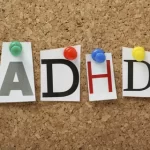Close to 10 million Americans may still be owed COVID-19 stimulus checks across the nation. Multiple federal administration stimulus packages enacted during the peak months of the pandemic provided financial relief to around 165 M Americans. But a significant number of them missed out on the payments and the IRS has moved in the last quarter of 2022 by sending out individual letters to such households.
The Government Accounting Office discovered that between nine and ten million individuals did not receive their payments which were first sent out over 2 years ago. Taxpayers who missed the filing deadline on April 15 this year had until October 17 to do the same and claim all pending stimulus checks.
Between April 2020 and December 2021 the federal administration made 3 separate direct pandemic stimulus payments to individuals and families that total close to a trillion dollars. The payment went mainly to American citizens with an annual AGI below $75,000 or married couples with income below $150,000. The administration also expanded the Child Tax Credit from $2,000 per child per year to between $3,000 and $3,600 to boost the payment amount and include more families.
Federal Tax Authorities Reach Out To Millions To Send Out Pending Stimulus Checks
But millions of individuals have incomes that are too low to make it necessary for them to file income tax returns. Most do not even exist in the records of the IRS as they have never filed returns. The tax authorities extended the timeline for filing to November 15 to enable such individuals and families to claim their income tax returns.
The IRS and the US Treasury Dept. encountered numerous issues in processing and sending out the payments, the reason millions of households failed to receive the due payments.
Such families have to file a simplified income tax return and claim their stimulus checks. The payments they could get include part of the full amount of the third stimulus check or the Economic Impact Payment, the Earned Income Tax Credit, and the expanded Child Tax Credit stimulus check.
The GAO revealed that you might not have been sent any payment for one or more of the following reasons. You might either have never needed to file a tax because of your low income or might have filed for the first time. Americans who do not have a bank account or for some reason lack access to banks were also denied the payments.
Families with mixed immigrant status, those who partially qualify for several payments, missed out completely in many cases. Families with a lack of internet access or limited access and homeless individuals and families have not been sent the stimulus checks.
To expedite the payments, the Treasury Dept. and the IRS launched numerous outreach programs to track such individuals and families who could be in line for one or more of the federal payments. But such efforts continue to be affected by the lack of communication with such families.
Between April 2020 and December 2021 the federal administration made 3 separate direct pandemic stimulus payments to individuals and families that total close to a trillion dollars. The payment went mainly to American citizens with an annual AGI below $75,000 or married couples with income below $150,000. The administration also expanded the Child Tax Credit from $2,000 per child per year to between $3,000 and $3,600 to boost the payment amount and include more families.
Congress is set to make amends for the issues with the present spate of spending packages that has allocated over $80 billion for the Internal Revenue Service over the next decade. It is the biggest boost in decades. Around $33 billion alone will go towards modernization and operational support, services for filers, and system upgradation.
Individuals and families who believe they are still owed a stimulus check payment can also reach out on their own. The GAO has advised people to log into these revenue service websites, irs.gov/coronavirus/EIP, and ChildTaxCredit.gov. they can find detailed information on ways to complete and submit their income tax returns and claim their payments.
State Stimulus Check Continue Into 2023
With prices continuing their unabated rise for over a year, it has become more difficult for families and individuals across the country to manage their finances despite a generous rise in wages across sectors following the pandemic. the lack of federal stimulus checks in 2022 has led to people experiencing a negative increase in wages with the inflationary spike in prices of products and services negating any rise in wages and other earnings.
The expanded Child Tax Credit stimulus checks drew to an end in 2021 and only the pending amount was sent out to beneficiaries in 2022. President Biden’s plans for extending the CTC payments into 2025 were stymied by the Republicans in Washington. But some states have dipped into their surplus funds to send out child support payments on their own.
Montana for instance has pushed forward a child tax credit stimulus check with funding from the budget surplus of the state that is worth $2 billion. Governor Greg Gianforte has offered the option to cut back on taxes by $1 billion. This child support fund will individually be worth $1,200 for children under the age of six.
The state administration is yet to give details of any type of income tap or the maximum that individuals and families can claim for their children or if children who are above this age could be in line for any amount under the state scheme. There are also other policies in place that are family-friendly and include the property tax relief that is also part of Gov. Gianforte’s plans.
Colorado also has come up with similar measures. The Colorado Child Tax Credit is a new stimulus check similar to the federal expanded CTC payments that were given in 2021. It will be available to residents to claim on their 2022 state income tax returns when they file at the start of January 2023.
The Colorado CTC stimulus checks will be available to residents with an AGI of up to $75,000 for individuals and up to $85,000 for married couples filing jointly.
If any family has at least a qualifying child under 18 years by December 31, 2021, with a valid Social Security number they are in line for state relief in spite of the undocumented immigrant status of their parents.






